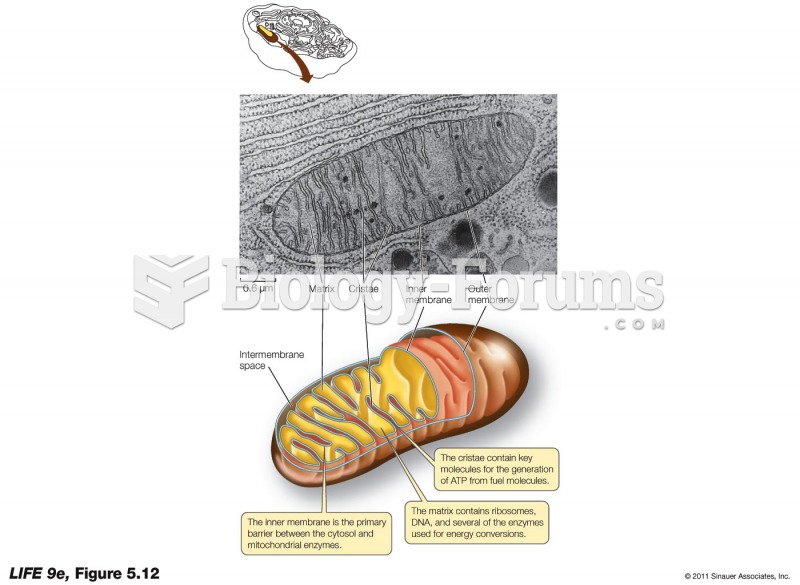|
|
|
The most destructive flu epidemic of all times in recorded history occurred in 1918, with approximately 20 million deaths worldwide.
Malaria was not eliminated in the United States until 1951. The term eliminated means that no new cases arise in a country for 3 years.
Recent studies have shown that the number of medication errors increases in relation to the number of orders that are verified per pharmacist, per work shift.
The strongest synthetic topical retinoid drug available, tazarotene, is used to treat sun-damaged skin, acne, and psoriasis.
Chronic marijuana use can damage the white blood cells and reduce the immune system's ability to respond to disease by as much as 40%. Without a strong immune system, the body is vulnerable to all kinds of degenerative and infectious diseases.
 A fuel heater is part of the fuel filter and water separator located on the frame rail of a Ford ...
A fuel heater is part of the fuel filter and water separator located on the frame rail of a Ford ...
 A typical fuel pulsator used mostly with roller vane-type pumps to help even out the pulsation in ...
A typical fuel pulsator used mostly with roller vane-type pumps to help even out the pulsation in ...





